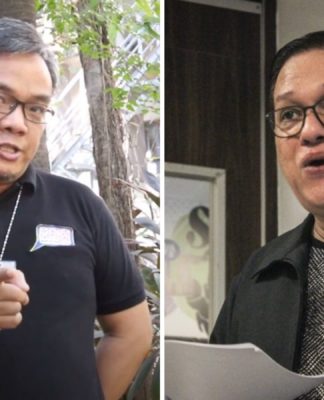THE SPATE of killings of journalists in the country—40 casualties and counting during the present administration—indicates that press freedom in the once freest press hub of Asia has turned dangerous, too dangerous in fact that the Philippines is now tagged as the second most dangerous place for journalists after Iraq.
But Justice Secretary Raul Gonzales’ go-signal to arm media men with guns for self-defense only shows the justice system’s haplessness to crack down on the culprits. Or perhaps the justice secretary understands “free press” to mean the freedom of journalists to exact justice with their own hands?
To let journalists bear firearms as called for by media pundits like the Association of Responsible Media (ARM) is hardly responsible; it denies the power of the pen over the sword. Although we sympathize with ARM’s fallen colleagues, their response to the situation is a shot in the dark.
For one, journalists, like other civilians, have always been free to get license to hold firearms. But the arms race has not solved the problem and has not deterred killers. Most of the killings were done near the victims’ place of work or home, suggesting that killers had studied the routines and unguarded moments of their targets. Should we arm journalists with guns, why not also hire them henchmen for a fair gunfight with assassins?
If self-defense is desired, then we can give journalists, like the war correspondents being sent to Iraq, bulletproof gears and security links to relatively protect them from possible assaults, while dispossessed of means to take offense. Should they need government intervention, journalists can seek cover through the military and the police who are skilled in combat, but they should stand their ground as civilian observers and impartial participants.
The International News Safety Institute, a coalition of press groups advocating security among journalists, stresses that “journalists are neutral observers,” and that “no member of the media should carry a firearm in the course of his or her work.”
The Geneva Conventions-International Committee of the Red Cross gives the same protocol: journalists in dangerous missions must be considered civilians and they themselves must take no action affecting their status. Once journalists get into the fray as protagonists, the more they become enemy targets.
In the present mayhem, either the government lacks the means to ensure the right to life, security, and public order of its citizens, or it is all ready to see some of its citizens dead, be they too “hao-siao” fly-by-night journalists or not.
What about political activists who have been killed? Then why should the government not also arm the leftists? Why not also hand guns to night-shift women workers in danger of being raped, to students and businessmen risking hold-up, because as Gonzales admitted, the government “cannot watch every criminal at every corner”?
As long as assassins can escape the arms of law and certain classes are accorded privileged protection, nothing can halt the killings.The rash of deaths is precisely due to loose firearms and the culture of impunity that Gonzales’ suggestion seems to abet.
Now here’s another catch. The Philippine Center for Investigative Journalism said that many of the victims were not really members of the working press, but were freelancers and “block timers” without professional training; and that some of the killings were not work-related.
Journalists’ freedom of expression must proceed not with guns but with accurate reporting, balance, fairness and a little caution, especially in our country where journalists too often take partisan ideas, run for politics, and are sometimes political hacks. The journalist’s task is to focus on issues rather than personalities, to bring up both the good and the bad, and to build constructive criticism. Media men have a code of ethics to observe, and it is not going to be honored through the barrel of a gun.
In a lecture on press ethics held last March at the UST Library, veteran journalist and former Varsitarian columnist Alice Colet-Villadolid said, “Journalists must adhere to scrupulous reporting or interpretation of news, not to suppress essential facts or distort trust by improper omission or emphasis.” This standard is for every journalist to gun for with a bang. It can save lives, especially journalists who sometimes mistake their job for that of petty politicians’ or gunslingers.’

















